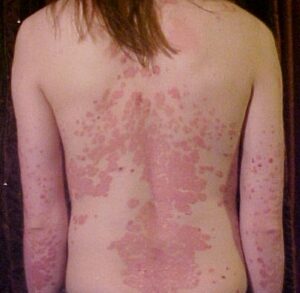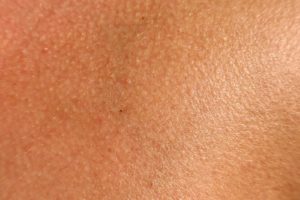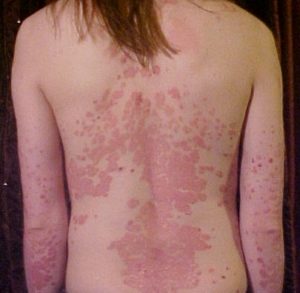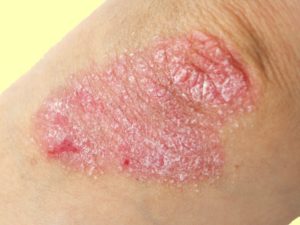
Individuals with psoriasis are always looking for ways to improve the inflammatory skin disorder, especially natural ways. A recent small study found that following a Mediterranean diet is a simple and effective way to reduce the symptoms of psoriasis (red, scaly patches and persistent itching).
Subjects with mild to moderate psoriasis were randomly assigned to one of 2 dietary groups. The group following a Mediterranean diet for 16 weeks had significantly reduced psoriasis severity and symptoms, when compared to the control group that were just told to follow a low-fat diet. Almost half of the Mediterranean group had a 75% reduction of psoriasis severity and symptoms! None of the low-fat diet group had a reduction in psoriasis severity and symptoms.
Additionally, all persons in the study were using their usual topical therapy for their psoriasis. The improvements in the Mediterranean diet group occurred without significant weight loss.
 The Mediterranean diet is rich in fruits, vegetables, whole grains, seeds, nuts, legumes, fish, and olive oil. In the study's Mediterranean diet group, the participants were not only given nutritional advice, but also a weekly provision of extra virgin olive oil. This diet is anti-inflammatory, which is why it may be so beneficial to those with psoriasis.
The Mediterranean diet is rich in fruits, vegetables, whole grains, seeds, nuts, legumes, fish, and olive oil. In the study's Mediterranean diet group, the participants were not only given nutritional advice, but also a weekly provision of extra virgin olive oil. This diet is anti-inflammatory, which is why it may be so beneficial to those with psoriasis.
Medical Xpress: Mediterranean diet leads to 75% symptom reduction in patients with mild to moderate psoriasis
Over 60 million people worldwide are affected by psoriasis, a chronic inflammatory skin disorder that causes red, scaly patches and persistent itching. A new study has found that following a Mediterranean diet—rich in plant-based foods, extra-virgin olive oil, and a moderate amount of fish, and poultry—could provide relief to psoriasis symptoms.
...continue reading "Following A Mediterranean Diet Leads To Big Reduction In Psoriasis Symptoms"



 Psoriasis. Credit: Medscape
Psoriasis. Credit: Medscape